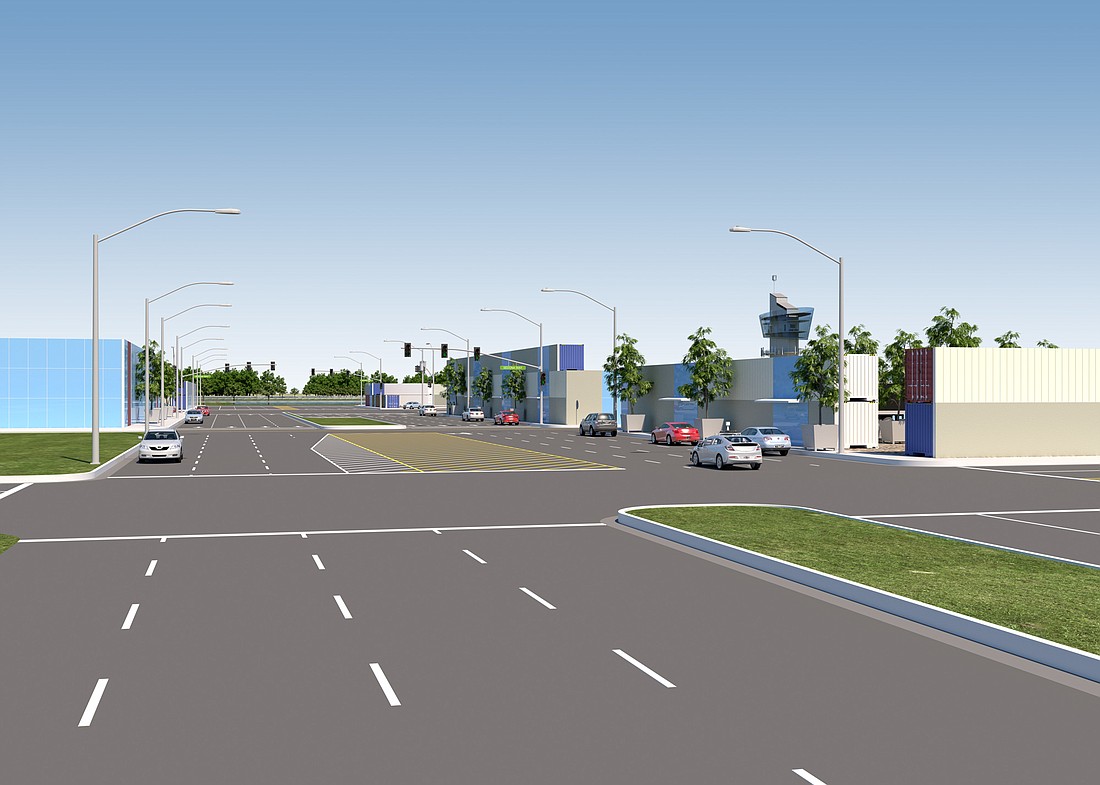- July 26, 2024
-
-
Loading

Loading

Like a race car zooming to the checkered flag, Florida Turnpike Enterprise’s $42 million SunTrax autonomous vehicle testing site north of Auburndale in Polk County can see victory: within a month it expects to complete construction of its 2.25-mile oval track.
“By the end of April, the beginning of May, we’ll be ready to shift away from facilities to operations,” SunTrax Administrator Paul Satchfield says.
And by the summer officials expect to surpass a major milestone when it signs a contractor to operate the first-of-its-kind “smart” technology testing center. “Companies from around the world are looking at it,” says Central Florida Development Council President and CEO Sean Malott. “It is a critical selection for us.”
With an operator in place, officials say the next race will catapult Polk into the big leagues. That’s because SunTrax will be competing to lure Google, Apple, Ford Motor Co., Lyft, Uber and others to the site. Those tech mobility leaders plan to purchase 25,000 AVs by 2021, to test prototypes for what some estimate will be a $100 billion annual industry by 2021.
The Central Florida Autonomous Vehicle Partnership — including the Florida Turnpike Enterprise, Florida Polytechnic University, NASA, the University of Central Florida, Florida Agricultural & Mechanical University and Lynx — sponsors SunTrax. The oval track at the heart of the project, which will encircle a 200-acre infield, is part of a 475-acre testing center for AVs and “smart” technologies, adjacent to Florida Poly on Interstate 4, west of Orlando.
Construction of the five-lane oval track began last June. With its completion begins construction of the infield, a $90-million project designed to simulate an urban streetscape, says Sean Malott. Infield construction is scheduled break ground in August.
By 2021, the state-public partnership plans to offer SunTrax to commercial tenants not only as a testing site for AV technologies, but as a center for researching tolling, intelligent transportation systems and smart-phone-based payments for tollways. The center, financed by turnpike toll revenues, could potentially be a venue for national and international certification for tolling technologies, officials believe.
'I will tell you, there is a lot happening here.’ Sean Malott, Central Florida Development Council
“There is a lot of anticipation,” Malott says, noting Florida Turnpike “will be able to do their stuff” immediately because the tolling technologies they wish to test — including taking payments from fully loaded tractor-trailers at 70 mph — will be in place once the oval is finished.
“The next key juncture coming is hiring an operator” to run the center, Malott says. SunTrax posted an Invitation To Negotiate and hopes to sign an operator by July or August. The right operator, he adds, will help SunTrax focus on getting tenants. Says Malott: “We really want to get out front. Our part in is recruiting companies.”
Similar initiatives are underway in other states, such as the American Center For Mobility in Michigan. But Satchfield notes SunTrax is the only one with a “tolling aspect” geared to serve independents and startups, as well as big carmakers. “Florida already has a very inviting environment” for business risk-takers, he says.
This isn’t merely science fiction. Orlando and The Villages, for example, are conducting live trials with experimental AV buses, and self-driving cars already operate in California and Texas. And in 2016, the U.S. Department of Transportation approved a $4 billion, 10-year plan to accelerate the development of AVs.
Also in 2016, Florida lawmakers eliminated a requirement that a human operator be present in a vehicle being tested and required metropolitan planning organizations consider infrastructure and technological improvements to accommodate driverless vehicles in long-range plans.
Last year, the Legislature loosened liability bond requirements for AV operators. This year, a bill, sponsored by Rep. Jason Fischer, R-Jacksonville, seeks to further reduce regulations for AV developers.
SunTrax, meanwhile, benefits by being part of the “the Florida Poly ecosystem,” Malott says. The testing center is adjacent to the school’s Advanced Mobility Institute and new $23.34 million Applied Research Center, which will feature laboratories, an entrepreneurship center and space for hosting research groups, when it opens in 2021.
The high-tech testing center is also amid a nest of technology startups along the I-4 corridor from Orlando to Tampa and the Space Coast. “I will tell you,” Malott said, “there is a lot happening here.”